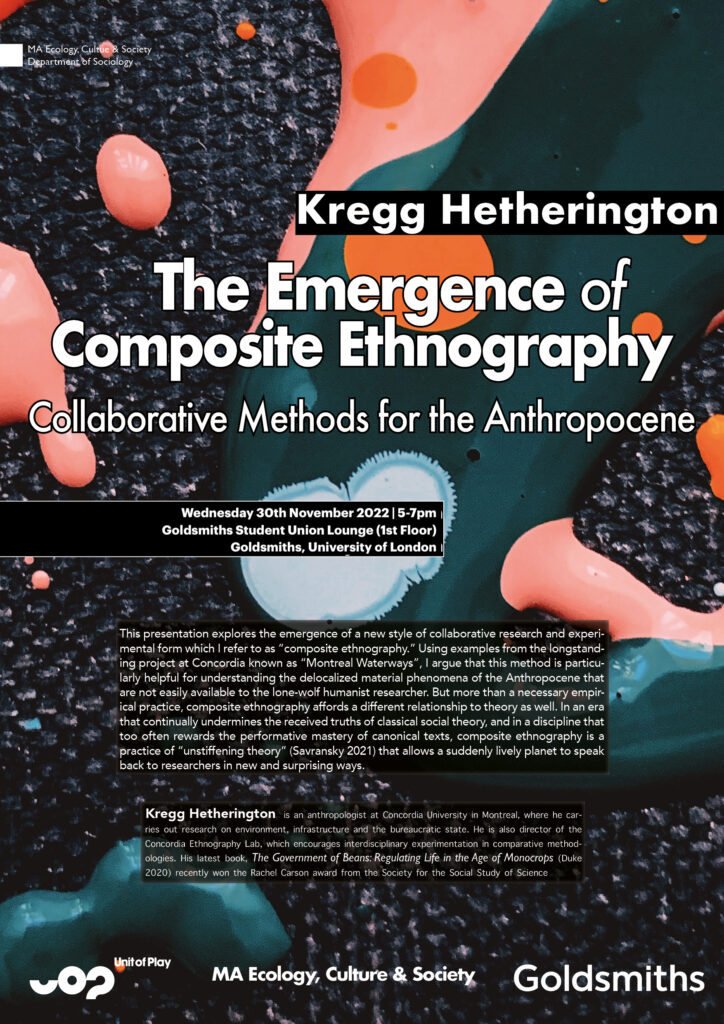
Kregg Hetherington (Concordia)
TEACH OUT!
Wednesday 30th Nov, 5-7pm | Goldsmiths Student Union Lounge (1st Floor) | Goldsmiths, University of London
All welcome! Registration required.
This presentation explores the emergence of a new style of collaborative research and experimental form which I refer to as “composite ethnography.” Using examples from the longstanding project at Concordia known as “Montreal Waterways”, I argue that this method is particularly helpful for understanding the delocalized material phenomena of the Anthropocene that are not easily available to the lone-wolf humanist researcher. But more than a necessary empirical practice, composite ethnography affords a different relationship to theory as well. In an era that continually undermines the received truths of classical social theory, and in a discipline that too often rewards the performative mastery of canonical texts, composite ethnography is a practice of “unstiffening theory” (Savransky 2021) that allows a suddenly lively planet to speak back to researchers in new and surprising ways.
Kregg Hetherington is an anthropologist at Concordia University in Montreal, where he carries out research on environment, infrastructure and the bureaucratic state. He is also director of the Concordia Ethnography Lab, which encourages interdisciplinary experimentation in comparative methodologies. His latest book, The Government of Beans: Regulating Life in the Age of Monocrops (Duke 2020) recently won the Rachel Carson award from the Society for the Social Study of Science.
